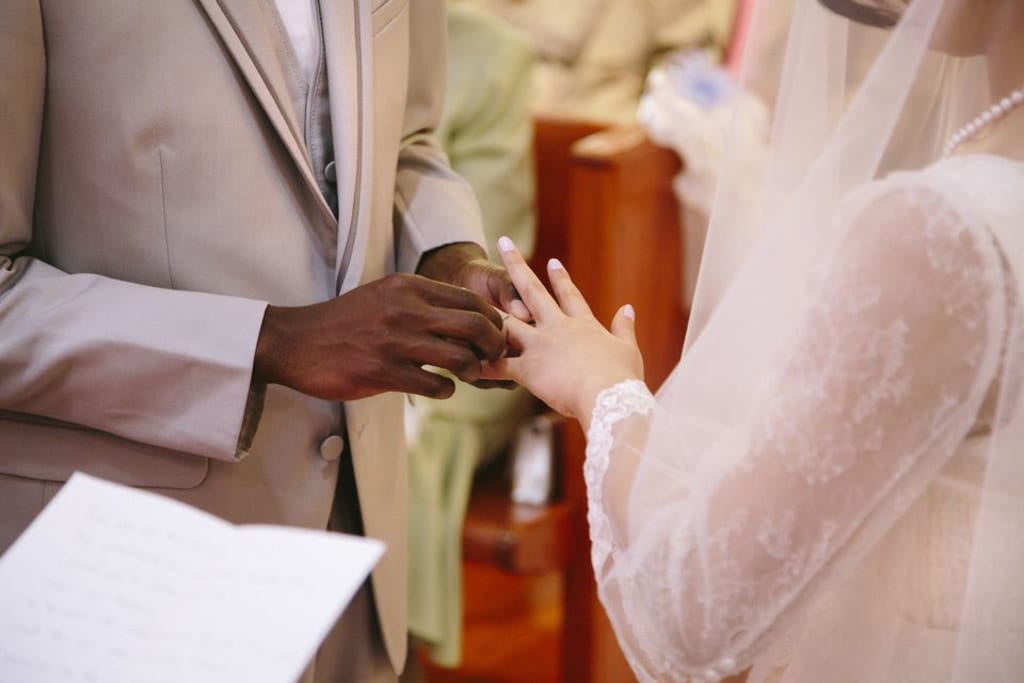The Post Marriage Name Change: Outdated Tradition or a Matter of Personal Choice?
Has the tradition of name-taking dissipated under the bright, white spotlight of feminism, individualism, and our pre-conceived notions of gender stereotypes?

I sit across from my mother’s oldest and dearest friend; Louise, a woman of 42 who considers it an achievement to have avoided marriage for almost four and a half decades. During a family gathering and midway through a passionate feminist speech, she declares she has no intention of taking her fiancé’s surname. “You bloody well will! It's tradition!” This threatening statement came from a feisty 82-year-old lady who had, so far not uttered a word from the recliner in which she slumped: the soon-to-be bride’s grandmother. Her reanimation at the mere mention of opposing this custom sparked a debate in my mind. Has the tradition of name-taking dissipated under the bright, white spotlight of feminism, individualism, and our pre-conceived notions of gender stereotypes?
In the 21st century, women’s campaign for equal rights has proved to be an arduous fight. Trudging through a muddy battlefield of male-dominated institutions and threatened masculinity, women have fought for equal wages through the Fair Pay Act, fought for their right to contraception in the Affordable Care Act, fought for the vote and fought against legal discrimination in the nation's highest courts. So I ask this: why should a woman have to fight for the right to her surname? Of course, I am aware that name change is not a legal requirement; it is simply a matter of personal choice. Yet this decision brings with it a boatload of baggage from those who see women’s lunge towards individuality something to be threatened by. A study by Men’s Health Magazine on alternatives to name-taking was met by a barrage of responses: “If she didn't take my name, I'd seriously question her faith in us lasting as a couple. And I don't want hyphenated kids,” writes a user, Brandon Peyton (who I can safely assume will not be able to emotionally manage having children if the idea of a hyphen triggers a tantrum). Another user penned that “Hyphenation is a direct ‘f*ck you’ to a man’s masculinity” (or maybe a less bronze age, more egalitarian approach, Mr Anonymous-Caveman.) In saying this, I now encourage you to think of the most masculine man you know: a real Danny Dyer, breadwinning, “If everyone gets a medal for taking part then is it really a competition?” type of man. Just envision his reaction the moment a woman proposes he take her surname in marriage; the power draining from his eyes as he realises: he’s been emasculated. However, this is not to be said of all men; some (albeit few) users gave me a glimmer of hope: “The only reason for a man to demand a woman take his surname is so that he can demonstrate ownership. Ultimately, this is the woman's decision and not one for the man to make or influence,” said Greg Hassler, a clearly intelligent human being.
My issue is that, historically, men have never had to deal with, nor consider, the domineering connotations of marriage. One hunrder years ago, when a woman assumed her husband’s name, she became his legal property, and that was the matter dealt with. Shouldn’t exploring options like hyphenation and blended names be encouraged and not seen as an aggressive feminist tirade to rid the world of tradition? In my eyes, unshackling the chains of tradition shouldn’t be looked down upon, but celebrated.
On the flip side, it would be foolish (and slightly oxymoronic) of me to judge anyone deciding to swim with the stream instead of against it. I am all for women wishing to take their husbands name, so long as they do it of their own free will and not because of an intense, unnecessary societal pressure to do so. I completely respect those who want to have the same surnames as their children; perhaps people who do not associate with their families, or just people who prefer their partners name to their own. Moreover, I empathise with those who change their names because of a stark lack of emotional attachment. My surname ultimately comes from my grandparents who followed this tradition, so would keeping my surname really be that big of a feminist statement?
Returning to our Macho Man from earlier, 96.3 percent of men said they would NOT take a woman’s name if she asked them to. One user said “Call it pride or ego, whatever. It’s not happening.” And another, quite hypocritically, professed that “My name is part of who I am.” Personally, I disagree. Is our name the means of many legal types of identification? Yes. But unlike some, I don’t have a strong, sentimental attachment to my name, nor do I feel it integral to my sense of identity. Yet I understand, acknowledge and proudly appreciate the struggle and prejudices women face in this day and age in the face of patriarchy. Surnames are not the only titles women have been fighting to alter; marked terms in certain professional industries have proven to be incredibly deprecating for women. (The abominable suggestion to use the term “authoress” instead of “author” is mind-blowing to me.) Should this lexical tradition of adding “ess” to words be abolished, just like the conservative act of changing your name?
My problem with this issue is more the reaction garnered at the suggestion of finding alternatives. I hope one day, a man taking his wife’s surname receives a blasé reaction. For me, it’s the freedom of personal choice: taking your husband's name does not mean you agree to those ‘It’s just the way things are’ traditions of late, just the way a man taking his wife’s name does not mean he is any less masculine. Similarly, I don’t think assuming a different surname in the future would make me any less of a feminist.
About the Creator
A. Andrews
☕️.






Comments
There are no comments for this story
Be the first to respond and start the conversation.